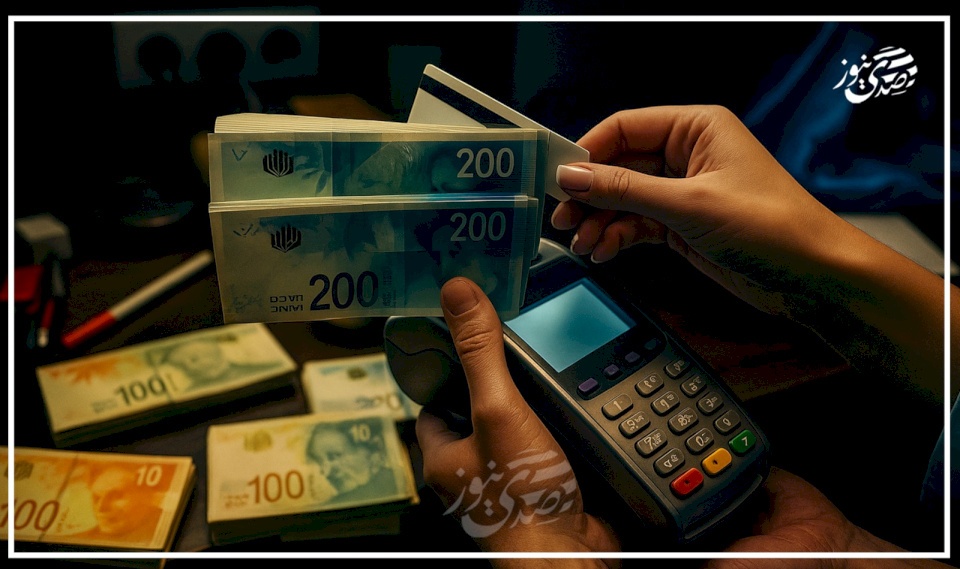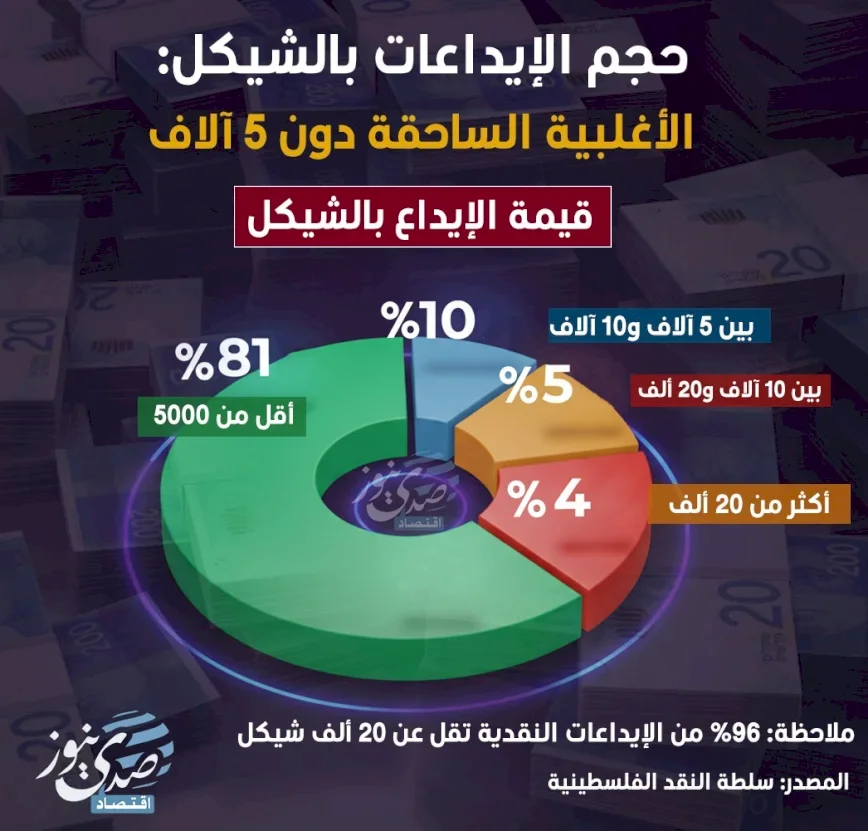
Why did the proposed bill set a cash usage ceiling of 20,000 shekels?
Exclusive to SadaNews - Since the Palestinian Monetary Authority announced last month the proposal of a law prohibiting cash payments in transactions exceeding 20,000 shekels, or its equivalent in circulating currencies in Palestine, criticisms of this project have not stopped, especially from fuel and gas station owners who publicly expressed their criticism of the provisions of this law which they see as a threat to their interests.
Among the main criticisms of the proposed law is that it has not been studied and that the ceiling of 20,000 shekels for cash usage is not based on market realities.
Muhammad Mansara, Deputy Governor of the Palestinian Monetary Authority, explains to "SadaNews" that setting this ceiling was not a hasty step, but rather took into account the nature of the Palestinian economy and its ties to commercial and financial transactions with the Israeli side, noting that "Israel" when it applied the cash usage limit law, initially set it at 11,000 shekels before later reducing this ceiling to 6,000 shekels.
He adds that the 20,000 shekels margin is practically double the amount set by Israel when it began to limit cash usage, which gives a broader margin for various economic sectors to adapt themselves to this ceiling.
It is noted that Israel's GDP reached about (540) billion dollars in 2024, while Palestine's GDP is about (15) billion dollars, meaning that the Israeli economy is approximately (36) times larger than the Palestinian economy.
Data issued by the Monetary Authority showed that 96% of cash deposits in shekels in banks are less than 20,000 shekels, while deposits exceeding 20,000 shekels do not exceed 4%. Approximately 81% of deposits are less than 5,000 shekels.

The proposed law restricts cash payments in transactions exceeding (20,000) shekels or its equivalent in circulating currencies in Palestine but allows the cash ceiling to be modified by a decision from the Monetary Authority in coordination with the Ministry of Finance and relevant parties.
The unions of fuel station owners and gas filling companies stated in a press release that the proposed law represents a real setback that significantly affects all economic sectors in Palestine, especially the fuel and gas sectors.
The statement warned that these new and "unstudied" laws would lead to the collapse of the fuel and gas sectors, in addition to severe repercussions on the entire Palestinian economy.
For his part, economist Dr. Thabet Abu Rouss told "SadaNews" that there are several considerations that support setting the ceiling of (20,000) shekels by the Monetary Authority. The first of these considerations is that 96% of deposits in shekels are below 20,000 shekels, the second is that the surplus of shekels that banks are suffering from compels the Monetary Authority as a necessity to address this problem by limiting cash usage, and the third is that the Israeli side reduced the ceiling for using shekels to (6,000) shekels in a single commercial transaction, which prompts the Monetary Authority to seek to regulate cash movement within the Palestinian market.
Economist Dr. Said Sabri believes that, despite the many issues in the draft law, the clear reformist intention in the law cannot be ignored. It aims to enhance transparency, combat tax evasion, and limit money laundering, in addition to bringing more actors into the financial inclusion circle.
Sabri believes that the figures present a troubling indication: According to reports from the Monetary Authority, those who have bank accounts in Palestine do not exceed 50% of the adult population, while only about 30% use electronic payment services. This means that almost half of the community remains outside the formal financial system, making any legislation that restricts "cash" precede the existing social and technical infrastructure.
He points out that imposing a cash ceiling without preparing the financial infrastructure could lead to counterproductive results, most notably the emergence of a gray market trading cash outside the banking system, or people resorting to alternative currencies such as unregistered cash shekels or even the dollar and dinar. Here, the reformist idea turns into a regulatory burden that complicates the crisis rather than solving it. Financial laws (as with international experiences) are not measured by their texts, but by their compatibility with market realities and people's culture.
Governor of the Monetary Authority, Yahya Shanar, pointed out in a meeting with journalists that the Monetary Authority will soon hold a consultative workshop allowing for broad participation from various economic sectors to listen to their remarks regarding the draft law. He indicated that the Monetary Authority has posted the proposed draft on its website and opened the opportunity for everyone to provide feedback.
Although the Governor of the Monetary Authority believes in the importance of the law and its implementation, he did not close the door to reviews regarding it, stating: "We have a big problem related to the accumulation of shekels in banks, which recently reached about 15 billion shekels, and anyone who wants to stop the law must address this problem first."

Israeli Estimates: The Iranian Ballistic Threat Will Remain and the Rate of Its Attacks Wi...

The Hague Group Holds an Emergency Meeting on March 4, 2026, Regarding Accountability and...

The President to His Lebanese Counterpart: We Support Any Steps Taken by Lebanon to Achiev...

Report: America Begins Attacking Iranian Nuclear Targets

Rutte Praises the War on Iran but Confirms NATO's Non-Involvement

"No Backing Down and Good Luck".. Behind the Scenes of Trump's Final Decision to Strike Ir...

Israeli Chief of Staff: We Will Not End the Battle Before Eliminating the Threat from Leba...

